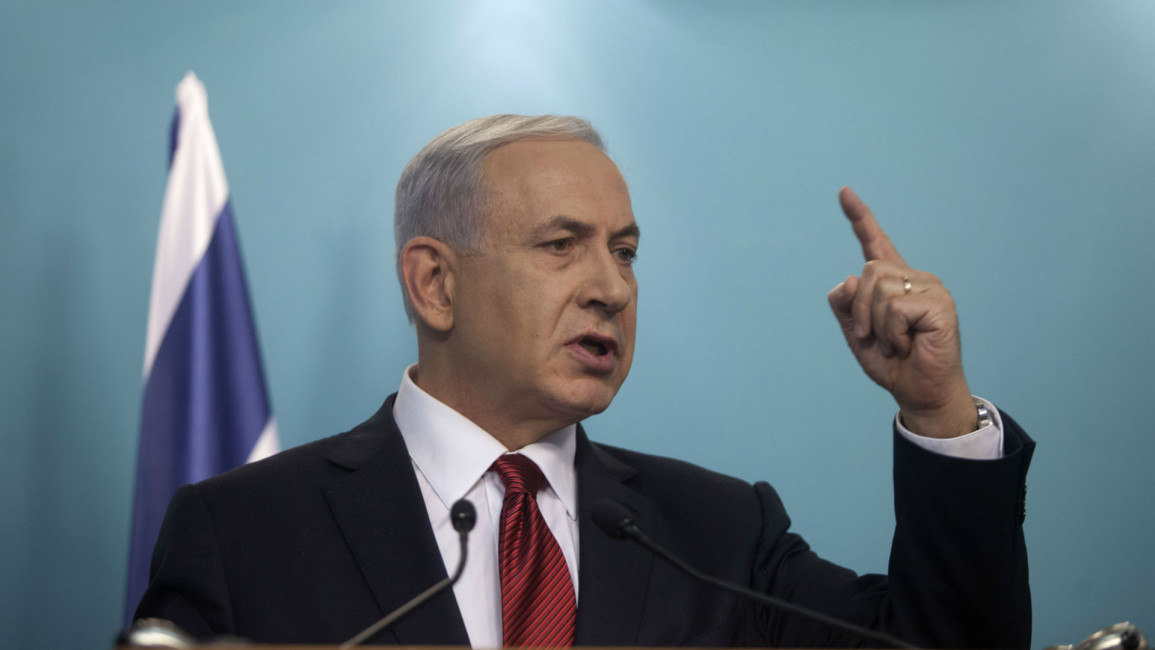Netanyahu warns Iran of military action over Red Sea waterway
Israeli Prime Minister Binyamin Netanyahu has warned Iran it would join military action to stop it blocking a key seaway after Yemen's Iranian-aligned Houthi rebels attacked two Saudi oil tankers.
Speaking at a navy ceremony late on Wednesday, Netanyahu warned against any attempt to block the Bab al-Mandab strait, one of the world's busiest shipping lanes and the southern entrance to the Red Sea.
On 26 July, Saudi Arabia said it had temporarily halted all oil shipments through the waterway after the Houthi rebels attacked two of its tankers.
On Wednesday, the Houthis announced a two-week pause in Red Sea operations.
"At the start of the week we witnessed a sharp clash with Iranian proxies who tried to obstruct international navigation in the straits at the entrance to the Red Sea," Netanyahu said.
"If Iran tries to block the Bab al-Mandab, I am convinced that it will find itself facing a determined international coalition to prevent this. This coalition would also include the state of Israel and all its arms."
Ships bound for Israel, mainly from Asia, pass through the waterway to Eilat, or continue through the Suez Canal to the Mediterranean Sea. Ships bound for Jordan's Aqaba port and for some Saudi destinations must also pass through the strait.
Bab al-Mandab is 29 kilometres wide, making hundreds of ships potentially an easy target.
Iran is Israel's main enemy and Netanyahu has repeatedly warned over what he sees as its expanding military presence in the region.
Israel has spoken of quietly improving ties with Arab states who share its concerns about Iran.
Only two Arab states - Egypt and Jordan - have signed peace treaties with Israel.
The Houthis are fighting a Saudi-led military coalition that intervened in support of Yemen's beleaguered government in March 2015.
The conflict has killed nearly 10,000 people and heaped misery on one of the world's poorest countries but the Houthis remain in control of the capital Sanaa and the key Red Sea port of Hodeida.



